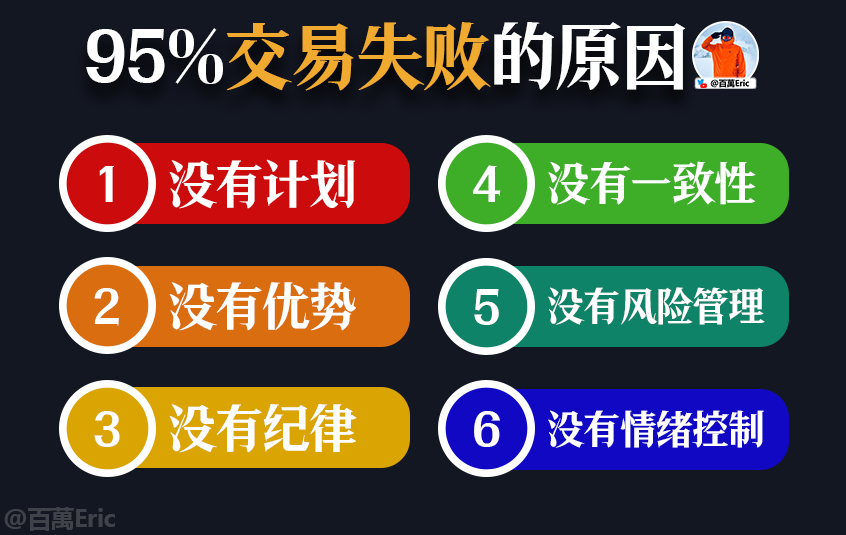Planning, strengths, discipline, consistency, risk control, and emotions—these six dimensions determine whether you can grow from a "trader who acts on impulse" to a "mechanically executing profitable trader."
Of these six dimensions, emotional management is the most misunderstood by traders.
Most novice traders believe they have "emotional problems," but in reality, they simply haven't undergone systematic training.
Those seemingly emotional outbursts, such as chasing highs, prematurely taking profits, and being afraid to add to positions, often stem from unclear planning, insufficient understanding, and a lack of risk control.
Without a clear entry criterion, you'll naturally hesitate repeatedly during an uptrend; without psychological expectations for profit and loss drawdowns, you'll naturally panic when profits are given back; without understanding the boundaries of your trading system, you won't be able to calmly hold positions when making big profits.
Mature traders aren't without emotions (absolutely not), but they never rely on "improvisation" or "a flash of inspiration," but rather mechanically execute their trading plans.
Therefore, the key to emotional management is not to suppress one's nature or shout emotional slogans to embolden oneself, but to repeatedly refine the trading system so that every decision is self-consistent.


